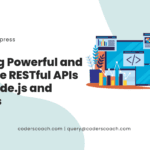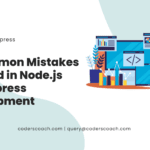Introduction
Hey there! Are you a developer, or someone who’s intrigued by the Laravel framework? Today, we’re going to delve into the world of Laravel packages, the small pieces of code that can give your projects superpowers!
What are Laravel Packages?
In simple terms, Laravel packages are bits of code that can be dropped into any Laravel application to provide specific functionality. Think of them as the “plug-ins” of the Laravel world.
Why are Laravel Packages Essential?
These packages can save developers hours of coding by providing pre-built features, helping them stay productive and focused on what’s unique about their projects. Now, let’s get into the meat of the matter and uncover some must-have Laravel packages.
1. Laravel Debugbar
One of the most popular packages in the Laravel community, Laravel Debugbar, allows you to add a developer toolbar to your application for real-time debugging and performance monitoring.
Features of Laravel Debugbar
With Laravel Debugbar, you can monitor queries, route details, view session data, and more, all in a neatly organized interface. It’s like having a magnifying glass for your code!
2. Laravel IDE Helper
The Laravel IDE Helper is another essential tool in any Laravel developer’s toolbox. It provides accurate autocompletion, improving your productivity and coding speed.
Benefits of Laravel IDE Helper
Apart from autocompletion, this package also helps with docblocks for all Laravel Facades, improving the readability and maintainability of your code. In other words, it’s a boon for clean coders!
3. Laravel Spatie
Spatie, a Belgium-based digital agency, has released numerous Laravel packages, but their Laravel-Permission package is a standout.
Why Choose Laravel Spatie
This package provides a flexible way to add role-based permissions to your Laravel application. With Laravel-Permission, managing user access is as simple as pie!
4. Laravel Telescope
Laravel Telescope is an elegant debug assistant provided by Laravel itself. It gives you insights into the requests coming into your application, exceptions, log entries, database queries, queued jobs, mail, notifications, cache, and a lot more.
Advantages of Laravel Telescope
Telescope makes it easy to drill down into the details of your application’s request cycle, helping you troubleshoot issues faster. It’s like having a high-powered microscope for your Laravel project!
5. Laravel Socialite
In today’s world, social media integration is almost mandatory for any web application. Laravel Socialite makes it easy to implement OAuth authentication with various providers such as Facebook, Twitter, Google, LinkedIn, and more.
Capabilities of Laravel Socialite
With Laravel Socialite, integrating social sign-in into your application is a breeze. It abstracts away all the boilerplate social authentication code, enabling you to get it up and running in no time.
6. Laravel Nova
Laravel Nova is a beautifully designed admin panel for Laravel. While it is a paid package, the convenience and robust feature set it offers make it a worthwhile investment.
Understanding Laravel Nova
Nova is designed for developers with its powerful features like resource management, actions, filters, lenses, and more, all controlled by simple PHP code. It provides a seamless and intuitive way to manage your Laravel applications’ administrative tasks.
7. Laravel Sanctum
Laravel Sanctum provides a simple, featherweight authentication system for single-page applications (SPAs), mobile applications, and simple, token-based APIs.
Laravel Sanctum Use Cases
Sanctum allows each user of your application to generate multiple API tokens for their account, making it ideal for situations where you need to issue tokens on a per-user basis.
8. Laravel Horizon
Laravel Horizon is a dashboard for Laravel’s Redis queues. It provides real-time insights into queue workloads, recent jobs, failed jobs, and job retries.
Highlights of Laravel Horizon
Horizon allows you to easily monitor key queue metrics, making it an invaluable tool for maintaining the health and reliability of your Laravel applications.
9. Laravel Passport
For full OAuth2 server implementation, Laravel Passport is the package to use. It provides a full OAuth2 server implementation for your Laravel application in a matter of minutes.
Strengths of Laravel Passport
Passport is built on the League OAuth2 server maintained by Andy Millington and Simon Hamp. This makes it a robust and reliable choice for implementing OAuth2 authentication.
10. Laravel Dusk
Laravel Dusk provides an expressive, easy-to-use browser automation and testing API. It’s ideal for applications that require JavaScript-based components like Vue.js.
Exploring Laravel Dusk
Dusk makes it simple to write end-to-end tests for your application. With its browser automation capabilities, it allows you to simulate user interactions and ensure your application behaves as expected.
Conclusion
So there you have it, our curated list of must-have Laravel packages. Whether you’re a seasoned developer or just starting with Laravel, these packages can significantly enhance your productivity and the quality of your work. Remember, the right tool for the right job makes all the difference.
If you’re interested in diving deeper into Laravel and exploring more packages, consider checking out the official Laravel documentation and the websites of the respective packages mentioned in this article.
FAQs
What is Laravel?
Laravel is a free, open-source PHP web framework used for web application development following the MVC (Model View Controller) architectural pattern.
What are Laravel Packages?
Laravel Packages are pre-built code pieces that can be incorporated into a Laravel application to provide specific functionalities, saving developers’ time.
Are all Laravel packages free?
While many Laravel packages are free and open-source, some premium packages, like Laravel Nova, require a purchase.
How do I install Laravel packages?
You can install Laravel packages via Composer. Each package has specific installation instructions that are usually provided in their documentation.
Can I create my own Laravel package?
Yes, you can. Laravel allows developers to create and distribute their own packages. This is an excellent way to modularize and reuse your code across various Laravel projects.







